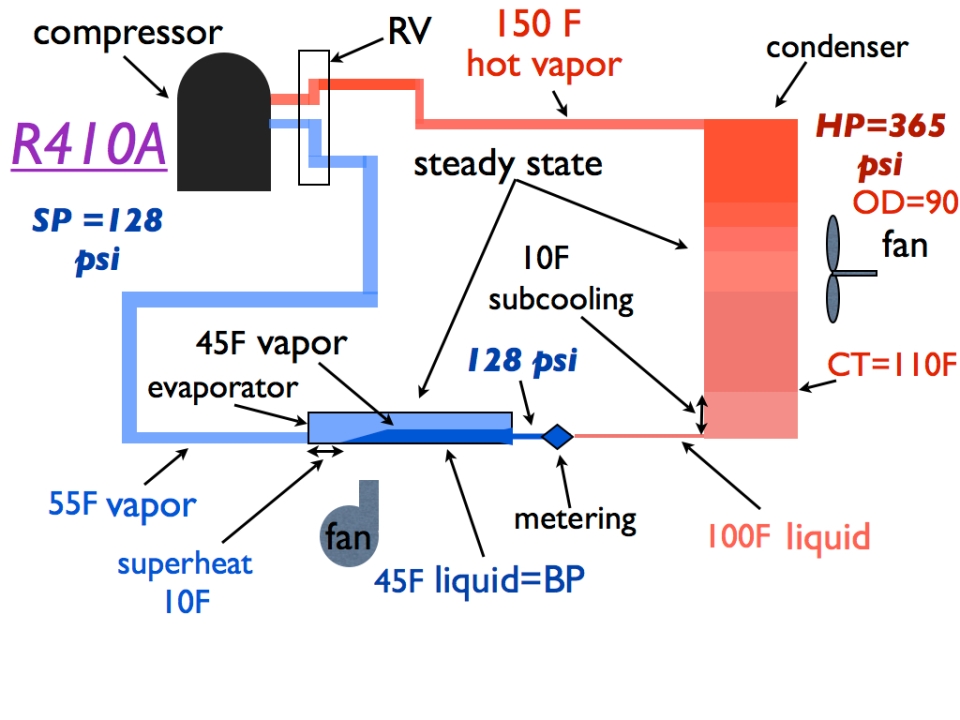(The content of this post is intended for consideration by trained service personnel only)
Heat pump system pressures are indirect measurements of saturated temperatures…the pressures are simply the result of the particular refrigerant used in the system. If you know what the saturated temperatures are supposed to be, you can easily determine the pressures.
Lets assume we’re connected to the R-22 heat pump system below running in the cool cycle, measuring pressures, tubing temps and calculating superheat and subcooling.
So, we’re looking at a head pressure of 225 psi, a suction pressure of 75 psi, liquid line temp @ 100F and suction line temp @ 55F. If we convert the head and suction pressures to saturated temperatures, the results are a condensing temp of 110F in the outdoor (condenser) coil and a boiling temp of 45F degrees for the liquid refrigerant in the indoor (evaporator) coil, giving us 10F degrees of subcooling, and 10F degrees superheat.
Now, suppose for the sake of discussion, we recover all the 22 refrigerant from the system, replace the oil, replace the 22 TXV with a 410A TXV, re-charge the system with 410A refrigerant, and start the equipment back up…Well, guess what? The system temperatures would be the same values (or at least near the same values). The only thing different would be the head and suction pressures.
We couldn’t actually convert a 22 system to 410A that simply…but you could have a 22 system and 410A system side by side, operating under the same indoor and outdoor conditions and see about the same operating temperatures. The gist of the post is to illustrate the fact that heat pumps (mechanical refrigeration systems) are designed to produce or generate, temperatures. The subsequent system pressures are simply the result of the saturated pressure-temperature relationships for a particular refrigerant at a particular temperature…
More discussion: Hvacr Professional. Com
You can get a full explanation and illustrations of heat pump operating pressures and temperatures in the refrigerant system video for rent:

